The economy is slowing just as California embarks on an ambitious expansion of early education. EdSource asked a range of early education practitioners, providers, experts and others to share their thoughts on how well Gov. Gavin Newsom’s 2023-24 budget proposal meets their priorities for supporting early learning.
Scroll down and click on the photos to read what they see as the highlights — and what they feel is missing — in the governor’s plans for investing in early learning and whole-child development. Also see what education leaders are saying about the governor’s budget proposals for K-12 schools and postsecondary education.

Stacy Hae Lim Lee
Children Now
What should be the priorities for supporting early education during this economic downturn, and how well does the proposed budget meet them?
Rate reform is the top priority for early learning, followed closely by ensuring sound transitional kindergarten implementation. We are pleased to see the budget proposal maintain TK expansion and acknowledge rate reform. Families with kids 0-5 have been struggling, providers have responded to every crisis, businesses can’t hire employees — all while funded classrooms are empty. The good news is there is a great plan the state must adopt and allocate funding for, over several years. We look forward to working with policymakers to ensure all providers and family voices continue to be included as the path forward is sorted.
What’s your No. 1 priority for early learning that should be protected, or even expanded, in a declining revenue year?
Right now child care is in crisis and more small business providers and family child care homes face closing their doors. We need to make a down payment on rate reform this year so that early learning professionals are paid a living wage, so we can fill every classroom with children who will thrive in their care. It will be worth the stretch to make this happen and the state will reap the rewards well into the future. Every other workforce relies on child care — if we want the economy to improve, we have to ensure child care is strong.
Stacy Hae Lim Lee is the chief learning officer and senior managing director, early childhood at Children Now, a California-based research, policy development and advocacy organization dedicated to improving children’s health, education and overall well-being.

Debra Watkins
A Black Education Network
What should be the priorities for supporting early education during this economic downturn, and how well does the proposed budget meet them?
When I wrote my application for Stanford University’s Secondary Teacher Education Program (STEP) in 1976, I indicated then that one of my long-term goals was to open high-quality preschools for Black students. Although I was training to be a high school teacher, I knew then that we needed to start with our youngest learners. That has never been a priority in California, and it is regrettably missing from this governor’s budget.
What’s your No. 1 priority for early learning that should be protected, or even expanded, in a declining revenue year?
We must invest in culturally relevant, high-quality preschools for Black students and early support beginning with excellent prenatal care and continuing until the children are ready to start school.
Debra Watkins is the founder and executive director of A Black Education Network, an advocacy organization that also provides professional development for teachers and culturally relevant programs for Black students.

Tyrone C. Howard
UCLA Center for the Transformation of Schools
What should be the priorities for supporting early education during this economic downturn, and how well does the proposed budget meet them?
An intense focus on literacy development is crucial for early education. The budget puts resources in for additional reading coaches and literacy specialists, but greater investment is needed, particularly for schools that Black, Latinx and low-income students.
What’s your No. 1 priority for early learning that should be protected, or even expanded, in a declining revenue year?
Basic needs and mental health are crucial. We still have over 250,000 unhoused students in California schools. Food insecurities are a real factor for too many students in California. And mental health issues are still a reality for millions of students across the state. We cannot shortchange those areas, because they have a direct impact on students readiness to learn.
Tyrone C. Howard is the Faculty Director of UCLA Center for the Transformation of Schools and Director of UCLA Pritzker Center for Strengthening Children & Families.

Professor Bruce Fuller
University of California, Berkeley
What should be the priorities for supporting early education during this economic downturn, and how well does the proposed budget meet them?
The governor and lawmakers have committed to a steady expansion of pre-K programs, along with improving quality. Let’s keep to that promise, even when economic clouds appear on the horizon. To avoid false promises — is pre-K narrowing early disparities? — let’s carefully assess the comparative benefits of different child care and pre-K programs. Get beyond faithful promises.
What’s your No. 1 priority for early learning that should be protected, or even expanded, in a declining revenue year?
Newsom’s budget quietly pulls back by one-third the Administration’s expected yearly growth in TK enrollment. Saying, we will fund whoever shows up (Department of Finance) is not progressive policy. Would the governor settle for this low aspiration in expanding health care coverage or food programs for poor families?
Bruce Fuller is a UC Berkeley education and public policy professor.

Holly Gold
Oakland-based Rockridge Little School
What should be the priorities for supporting early education during this economic downturn, and how well does the proposed budget meet them?
Families need relief from the high cost of child care. They want community-based preschools and home-based infant/toddler care. They do not want babies at preschool. They don’t want long hours at elementary schools with extra day care before and after school hours for their preschoolers. Without help for parents, neighborhood preschools will be a luxury only the wealthy can afford.
What’s your No. 1 priority for early learning that should be protected, or even expanded, in a declining revenue year?
Funds for parents to use toward a licensed child care of their choice. This could be a tax rebate or a stipend. The research has shown that children thrive in community-based preschools. It is misleading to use the findings to support putting young children in elementary school classrooms. The research shows that preschool-age children do not thrive in public school settings; in fact, long-term studies show harm.
Holly Gold, MSW, is a longtime educator and the founder of Oakland-based Rockridge Little School(s). She is currently writing a book about the early childhood education field.

Avo Makdessian
First 5 Association of California
What should be the priorities for supporting early education during this economic downturn, and how well does the proposed budget meet them?
While the Governor’s budget proposal continues to invest in young children, First 5 programs across the state are in jeopardy of being cut or eliminated due to declining tobacco tax revenue, First 5s’ main source of funding. Declining smoking rates in the state have resulted in reduced tax revenue for First 5s, which is compounded by the recent passage of Proposition 31, the statewide flavored tobacco ban. First 5 revenue is projected to decrease by a staggering $461 million over the next eight years and $138 million in the next 18 months alone. This destabilizing budget deficit threatens the infrastructure that has been built over the last 25 years and puts services for California’s youngest children in jeopardy.
What’s your No. 1 priority for early learning that should be protected, or even expanded, in a declining revenue year?
In order to continue to meet the needs of California’s babies, toddlers and preschoolers, we look forward to working with the administration and the Legislature to ensure the cost of the flavored tobacco ban is not unintentionally paid for by cutting local First 5 programs such as child care, health screenings, parenting support and other vital services.
Avo Makdessian is executive director of the First 5 Association of California, a statewide organization representing the 58 First 5 county commissions, which focuses on building the early childhood systems and the supports needed to ensure California’s young children are safe, healthy and ready to succeed in school and life.

Gina Fromer
Children's Council of San Francisco
What should be the priorities for supporting early education during this economic downturn, and how well does the proposed budget meet them?
We should eliminate family fees, resolve ongoing child care pay gaps and ensure that programs like the Child Care Initiative Project, which creates new child care businesses, continue to grow. Asking struggling families to absorb the cost of child care for the government isn’t right. We must recruit and retain early educators by paying them a living wage. I am confident California can sustain the investments we have made to our system. Without the continuation of the bold child care investments the Governor made during the pandemic, California’s children and families will suffer.
What’s your No. 1 priority for early learning that should be protected, or even expanded, in a declining revenue year?
Our top priority is ensuring that child-care investments made during the pandemic continue. These investments played an essential role in preventing our child-care system from collapsing. Unfortunately, many of these investments are not in the budget, including “hold harmless,” which ensures providers are reimbursed the maximum amount per child each month; the elimination of child care fees for low-income families; and the expansion of the Child Care Initiative Project, which helps individuals join the early education field to resolve our child care supply shortage. These investments are essential, especially in an economic downturn when families are struggling to afford basic needs.
Gina Fromer, Ph.D., is CEO of Children’s Council of San Francisco, a child care resource and referral organization that advocates for quality early care and education, empowers families with information and financial support and builds the capabilities of educators, ensuring that every child in San Francisco has the opportunity to reach their full potential.

Jessie Ryan
The Campaign for College Opportunity
What should be the priorities for supporting early education during this economic downturn, and how well does the proposed budget meet them?
The goal of implementing universal transitional kindergarten by 2025 is critical to meeting the future well-being of students and the state. Governor Newsom’s proposed budget upholds his universal TK commitment and prioritizes our state’s youngest learners.
What’s your No. 1 priority for early learning that should be protected, or even expanded, in a declining revenue year?
Even in bad budget times, our state must honor our commitment to students by establishing the largest free, high-quality preschool program in the country. This critical investment in equitable opportunity on the front end of children’s educational journey will yield lifetime returns.
Jessie Ryan serves as executive vice president of the Campaign for College Opportunity, where for nearly two decades she has led the organization’s ambitious policy and advocacy efforts to impact college access, student success, affordability and racial equity in higher education.
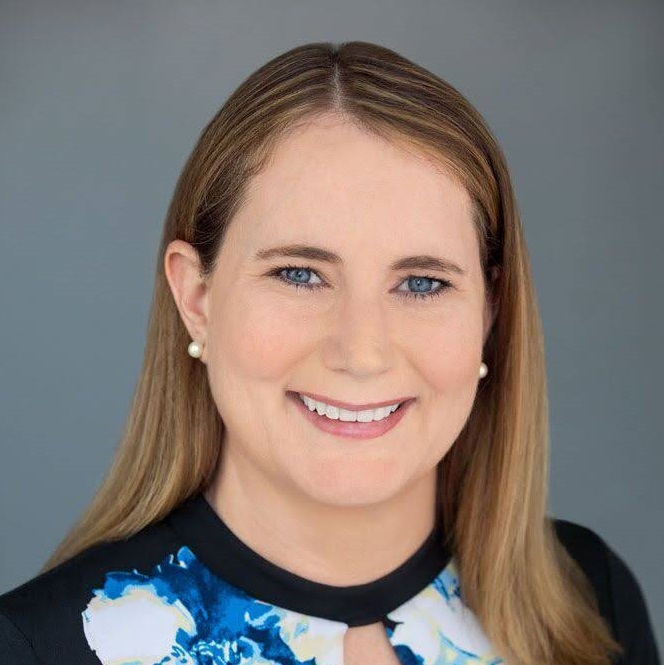
Jessica Sawko
California STEM Network
What should be the priorities for supporting early education during this economic downturn, and how well does the proposed budget meet them?
There needs to be a greater focus and effort on incorporating STEM and STEAM learning experiences in early education. Children are born with a natural curiosity and sense of wonder. This natural ability can be fostered and supported through developmentally appropriate, play-based, hands-on learning experiences in classrooms and at home. Parents and early-learning educators need resources and support to help foster a child’s STEAM skills. With over $900 million for arts education budgeted, my hope is that some of the art education kids receive, especially in the early years, is integrated with other subjects, i.e., STEAM learning experiences.
What’s your No. 1 priority for early learning that should be protected, or even expanded, in a declining revenue year?
Designing and delivering high-quality STEM/STEAM instruction is not part of teacher preparation. That is why it is essential that previous year, multiyear investments, namely the Early Math Initiative, the science and math professional learning infrastructure funds, are protected from any cuts as the budget process progresses. We also need investments in our teacher preparation programs so they can develop and offer PreK-3 credential programs. The new PreK-3 credential includes critical expectations for teachers of children aged 3 to 8 to have the skills and knowledge to provide equitable learning experiences and utilize culturally and linguistically sustaining practices and pedagogies.
Jessica Sawko is the statewide director of the California STEM Network, bringing together partners from TK–12, higher education, business, industry, government, science and technology, community-based organizations, and philanthropy to identify, scale and sustain effective STEM teaching and learning.
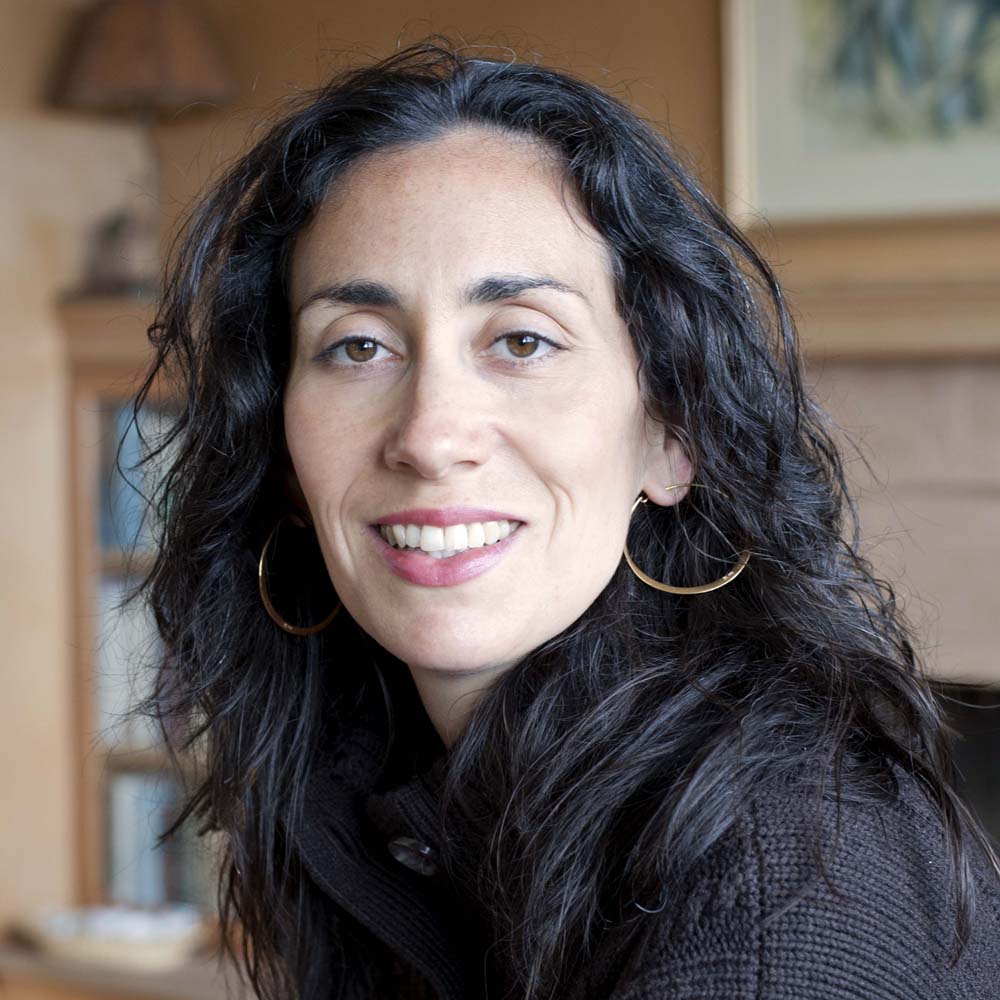
Anya Hurwitz
Sobrato Early Academic Language (SEAL)
What should be the priorities for supporting early education during this economic downturn, and how well does the proposed budget meet them?
In order to ensure the Governor and Legislature’s commitments to expand universal transitional kindergarten to all 4-year-olds by the 2025-26 school year, we must continue to support sustained investments. We applaud the Governor’s attempt to protect critical investments that ensure a more equitable foundation for all young children in California. This is especially critical for our dual language learners who are the majority of children 0-5 in our state. Investing in a multiyear plan with significant investments in professional learning opportunities for all educators across the workforce — recruitment, preservice, in-service,and retention – must focus on bilingualism and biliteracy.
What’s your No. 1 priority for early learning that should be protected, or even expanded, in a declining revenue year?
California’s Master Plan for Early Learning and Care aims to create a statewide equitable early learning system over the next decade. The plan specifically calls for greater attention to dual language learners, who constitute 60% of children 0-5 years old. California must prioritize all our youngest learners and move forward with full universal preschool, including both TK expansion, the California State Preschool Program and the informal early learning sector serving our diverse children and families. As we move towards this vision, the state must allocate adequate resources to build systems that provide educators with high-quality, sustained professional learning opportunities that are evidence-based and culturally and linguistically affirming.
Anya Hurwitz is the executive director, Sobrato Early Academic Language (SEAL).
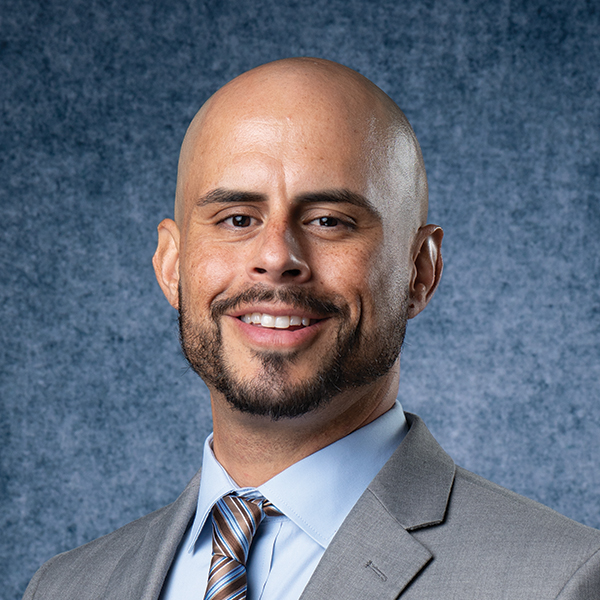
Adam Weinberger
California School Employees Association
What should be the priorities for supporting early education during this economic downturn, and how well does the proposed budget meet them?
CSEA was the sponsor of universal transitional kindergarten — championed by Assemblymember Kevin McCarty. UTK is providing students and their families an invaluable additional year of early learning. We are happy to see that the budget proposal continues UTK implementation in 2023-24.
What’s your No. 1 priority for early learning that should be protected, or even expanded, in a declining revenue year?
The adult-to-student ratio reduction in a UTK classroom from 1:24 to 1:12 has been transformational – both for students and educators. When UTK was adopted in 2021, there was a commitment made to lower the ratio even further from 1:12 to 1:10 in 2023-24 if there is funding appropriated for this purpose. We believe the additional ratio reduction is necessary to provide even more individualized assistance to our young learners.
Adam Weinberger is the association president of the California School Employees Association, AFL-CIO, a union representing a quarter-million classified employees in our public schools, county offices of education and community colleges.

Eric Premack
Charter Schools Development Center
What should be the priorities for supporting early education during this economic downturn, and how well does the proposed budget meet them?
California’s expansion of pre-kindergarten is admirable, but it begs streamlining of the Byzantine mix of multiple programs, funding formulas, staff qualifications, staffing ratios, facilities requirements and eligibility requirements. Unfortunately, the Governor’s budget continues the bewildering current mix, lacks facilities funding and ducks streamlining issues.
What’s your No. 1 priority for early learning that should be protected, or even expanded, in a declining revenue year?
Streamlining, consolidation and simplification of pre-kindergarten programs to allow providers to actually meet families’ needs and provide meaningful choices.
Eric Premack is the executive director of the Charter Schools Development Center, a charter school leadership support and advocacy organization based in Sacramento.

State Sen. Josh Newman
Chair of the Senate Committee on Education
What should be the priorities for supporting early education during this economic downturn, and how well does the proposed budget meet them?
First and foremost, we must keep commitments already made, including expanding transitional kindergarten; ensuring preschoolers with disabilities have access to the state preschool program; and increasing reimbursement rates and the number of slots for both state preschool and general child care. While the Governor’s budget aligns with many of these priorities, it does not address the shortage of quality, affordable child care, which worsened during the pandemic and disproportionately affects low-income working families.
What’s your No. 1 priority for early learning that should be protected, or even expanded, in a declining revenue year?
California has made significant progress over the last few years in expanding access to high-quality early childhood education, and I look forward to working with my colleagues, the Governor and stakeholders to ensure we continue to prioritize California’s youngest students even in a declining revenue year. Early learning and care suffered greatly during the pandemic as many programs saw significant drops in enrollment and attendance, as parents worked from home or were pushed out of the workplace. It is crucial that the state assist in ensuring these providers stay afloat so that these valuable programs can be maintained.
State Sen. Josh Newman is the Chair of the Senate Committee on Education and represents the 29th Senate District.
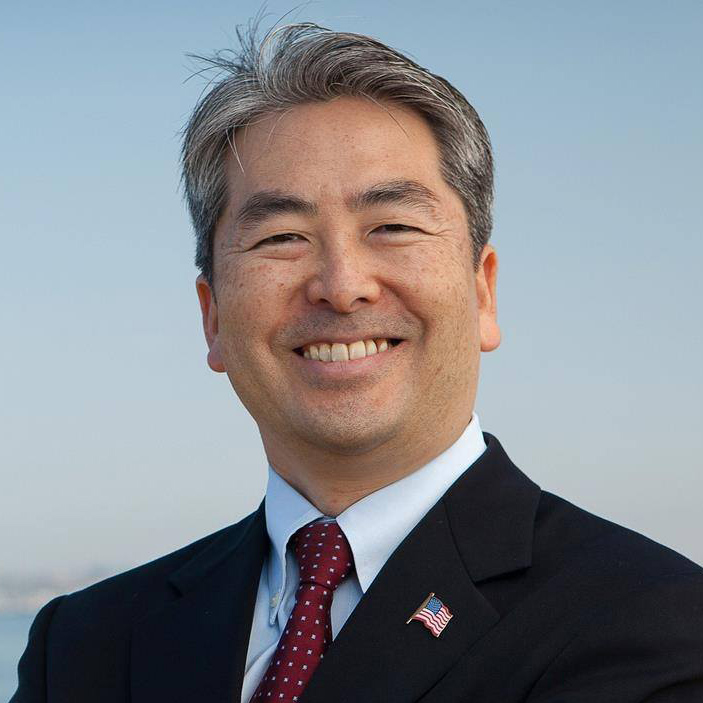
Al Muratsuchi
Chair of the Assembly Committee on Education
What should be the priorities for supporting early education during this economic downturn, and how well does the proposed budget meet them?
I am pleased to see the Governor’s continued commitment to expanding transitional kindergarten to all 4-year-olds by 2025-26. I am concerned that the Governor is proposing to delay the planned $550 million for early education facilities that was previously committed. We have heard clearly from local education agencies that one of the barriers to implementation of universal TK is a lack of facilities in many locations.
We need to continue to support a mixed-delivery child care system, including supporting our California State Preschool Program, we’re and pleased to see the 8.13% cost-of-living adjustment applied to CSPP programs.
What’s your No. 1 priority for early learning that should be protected, or even expanded, in a declining revenue year?
We must protect our existing infrastructure of child care providers as we lost considerable capacity during the pandemic as many providers closed permanently. This will take a serious commitment to reforming the rate reimbursement system. The Governor’s budget proposes to fund reimbursement rates previously supported by one-time federal stimulus funding, but further attention to this issue is needed.
Al Muratsuchi is Chair of the Assembly Committee on Education.

Vickie Ramos Harris
Catalyst California (formerly Advancement Project California)
What should be the priorities for supporting early education during this economic downturn, and how well does the proposed budget meet them?
California must advance racial equity by protecting and maintaining whole-child investments that offer families holistic support and enable the early childhood education workforce to thrive. The Governor’s budget does this via investments focused on: state preschool, transitional kindergarten, maternal and reproductive health, and literacy. This proposal also takes important steps to address the historic challenges in compensation for ECE providers who’ve received rates that are not reflective of the true cost of care. It is especially critical during the economic downturn to double down on investments across the mixed-delivery system to fortify the providers that offer critical support to California’s families.
What’s your No. 1 priority for early learning that should be protected, or even expanded, in a declining revenue year?
California must take action to fully resource ECE with funding that reflects the true cost of care and ensures the workforce, predominantly women of color, receives compensation that supports ECE providers and the young children they serve. We commend the state for taking important steps on rate reform and look forward to working with the governor to adopt an alternative methodology and implement a multiyear plan to fully fund a single reimbursement rate structure. Despite declining revenue, the state must invest and prioritize providers across the mixed-delivery system who are critical to the well-being of our youngest children.
Vickie Ramos Harris is the director of educational equity at Catalyst California, an organization that advocates for racial justice by building power and transforming public systems.

Scott Graves
California Budget & Policy Center
What should be the priorities for supporting early education during this economic downturn, and how well does the proposed budget meet them?
Families deserve access to affordable early learning and care options that promote whole-child development and support working families. The state should prioritize early learning and care by fairly compensating providers and allocating the resources needed to adjust to the expansion of transitional kindergarten.
The governor continues multiyear plans to expand transitional kindergarten and to ensure that the state preschool program serves a greater diversity of children — changes that can provide working families with more early education options. Unfortunately, the proposed budget includes no rate increases for providers, even though rates are a critical component of the early learning and care system.
What’s your No. 1 priority for early learning that should be protected, or even expanded, in a declining revenue year?
Severe underfunding, the impacts of Covid-19, and rising costs have forced many child care providers to close their doors, leaving many families without early learning options for their younger children. The state can address these funding gaps by accelerating the implementation of the single-rate reimbursement structure to stabilize and expand the child care workforce. Doing so can support providers — who are primarily women and disproportionately women of color — in keeping their doors open by ensuring early educators are paid fair wages to remain in the profession and make ends meet for their own households.
Scott Graves is the director of research for the California Budget & Policy Center, a nonpartisan, research and analysis nonprofit committed to advancing public policies that improve the lives of Californians who are denied opportunities to share in the state’s wealth and deserve the dignity and support to lead thriving lives in our communities.
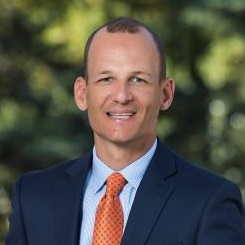
Kevin McCarty
Chair of the Assembly Budget Subcommittee on Education Finance
What should be the priorities for supporting early education during this economic downturn, and how well does the proposed budget meet them?
Early education priorities should be providing equitable opportunities for all families. This includes having more childcare slots and universal access to Pre-K. The Governor’s proposed budget keeps these items as a priority, which are vital if we are ever going to close the achievement/opportunity gap. However, one key element is missing — we need to keep increasing childcare reimbursement rates if we want expanded slots to be utilized.
What’s your No. 1 priority for early learning that should be protected, or even expanded, in a declining revenue year?
The early education budget is a good start. Again, we need to work on reimbursement rates, as well as one-time funding facilities and our early childhood education workforce.
Kevin McCarty represents Assembly District 6. He is the Chair of the Assembly Budget Subcommittee on Education Finance.
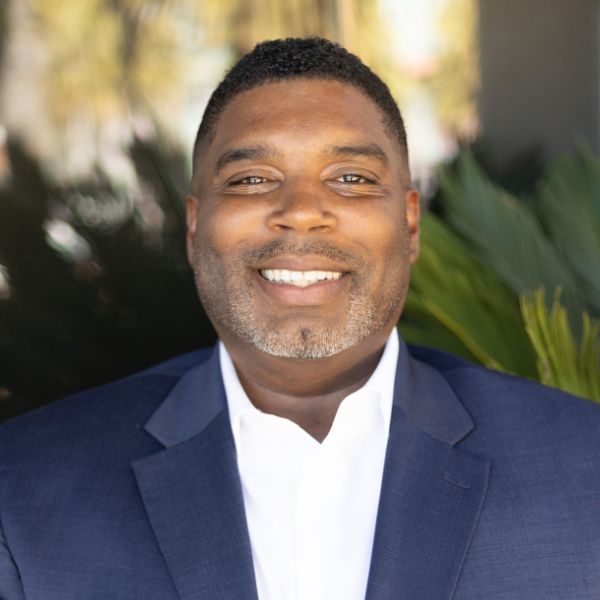
Christopher J. Nellum
The Education Trust–West
What should be the priorities for supporting early education during this economic downturn, and how well does the proposed budget meet them?
All Californian children must have access to early learning opportunities, especially children of color and multilingual learners. We applaud the Governor for investing in the California State Preschool Program and transitional kindergarten, demonstrating that he intends to provide the early learning and care services that families so badly need. Additionally, we hope to see more resources for professional development that supports social-emotional and developmentally appropriate practices, which include culturally and linguistically responsive and affirming strategies.
What’s your No. 1 priority for early learning that should be protected, or even expanded, in a declining revenue year?
Because families rely on multiple settings for early education and care, we believe in supporting the entire early learning and care mixed-delivery system. With families recovering from the pandemic amid increased inflation levels, we were hopeful the state would continue to waive family fees. As the state continues to move toward a single rate reimbursement structure, the early learning and care workforce, predominantly women of color, deserves rates that reflect the true cost of delivering services and values the expertise that early educators bring to our communities.
Christopher J. Nellum, Ph.D., is the executive director of The Education Trust–West, a nonprofit research and advocacy organization that works toward racial equity in California educational systems — preschool through college.

Tim Taylor
Small School Districts' Association
What should be the priorities for supporting early education during this economic downturn, and how well does the proposed budget meet them?
Stay on course to provide preschool for every child as all research shows students who attend early education programs develop the social and emotional skills they need to succeed and graduate from high school. The budget did well for early childhood education.
What’s your No. 1 priority for early learning that should be protected, or even expanded, in a declining revenue year?
Expanded funding for early education facilities for schools at capacity.
Tim Taylor, executive director, Small School Districts’ Association, which amplifies the voices and advocates for our 539 member districts.

Mary Ignatius
Parent Voices California
What should be the priorities for supporting early education during this economic downturn, and how well does the proposed budget meet them?
First and foremost, we believe that in order for a strong and robust child care system to thrive, the needs of children, their parents and the early educators we all depend on must be seen as interdependent. Our priorities should not pit those needs against each other. This budget proposal falls short of meeting all those needs, and we look forward to working with the Governor, Legislature and our allies during the budget process to get us closer to child care justice. We want to see a final budget that gets higher wages into the pockets of early educators in whichever setting they serve children; we want to see the family fee waiver extensions that expire June 30 to continue so we don’t go back to subsidizing child care on the backs of predominantly mothers of color who can least afford to pay those fees; and we want the commitment to get 200,000 kids off the waitlist by 2025 remain intact.
What’s your No. 1 priority for early learning that should be protected, or even expanded, in a declining revenue year?
I know many of the respondents will probably say wages and fixing rates is the No. 1 priority, and we wholeheartedly agree with that. I also don’t believe we have to pick one priority. Declining revenue in the state is nothing compared to the declining revenue in family households. They cannot take on another job or more hours or budget what they have any more; they need the financial freedom to choose how their hard-earned dollars are spent. Another “No. 1 priority” is the continued waiving of child care family fees because families shouldn’t have to pay fees for publicly funded child care, just like families do not pay fees for publicly funded state preschool, Head Start, transitional kindergarten, or K-12 education. Thus far, fee waivers have resulted in credit scores going up, debt being eliminated, credit card consolidation with better interest rates, families completing higher education while working, and catching up on bills that have piled up. Extending the waiver will help families continue this progress.
Mary Ignatius is the statewide organizer of Parent Voices California, a grassroots organizing effort throughout California.
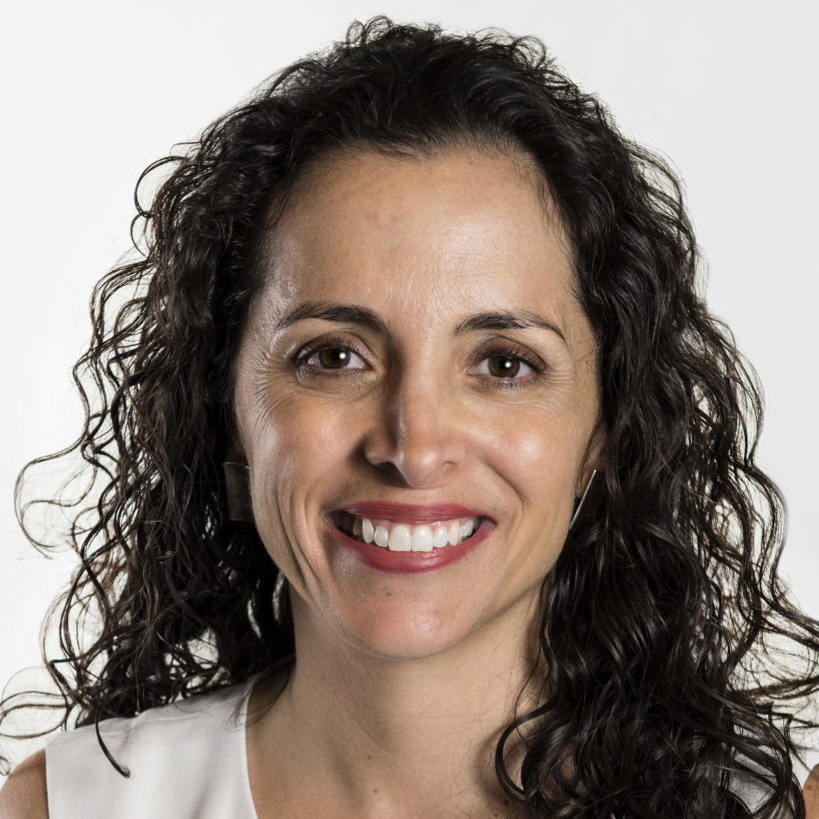
Patricia Lozano
Early Edge California
What should be the priorities for supporting early education during this economic downturn, and how well does the proposed budget meet them?
Early learning and care is the backbone of our economy. To ensure more working families have access to quality care and education options, California needs to continue to develop a robust early learning and care system that fairly compensates and provides ongoing professional development for teachers and providers. This means reforming our current reimbursement rate system to cover the true cost of providing quality child care, and raising compensation and training opportunities for early learning and care educators. The Governor’s budget builds on last year’s rate increases and expresses his commitment to developing a single reimbursement rate structure and continuing to negotiate with workers about rate increases. We also recognize the need for the federal government to continue its support for early learning programs once the pandemic-era funding ends.
What’s your No. 1 priority for early learning that should be protected, or even expanded, in a declining revenue year?
Early Edge was pleased to see the Governor’s continued commitment to expand transitional kindergarten and to achieve universal TK by 2025. As TK expands to serve all 4-year-olds, it is important that we keep implementation front of mind to ensure its success. This means prioritizing efforts to support workforce pipelines to ensure we have educators that are well-prepared with a strong background in early learning, as well as classrooms that optimize teaching and learning for our youngest students.
Patricia Lozano is the executive director of Early Edge California, an advocacy organization focused on advancing policy changes and investments that will expand high-quality early learning programs for all children from birth to age 8.

Clemaus Tervalon
Student Senate for California Community Colleges
What should be the priorities for supporting early education during this economic downturn, and how well does the proposed budget meet them?
One of our priorities for the 2023-24 budget year is the expansion of community college child care centers across the system. These centers provide student parents with high-quality, affordable child care while they attend class or work. These programs also benefit California’s child care workforce by providing early education students with the opportunity for hands-on learning.
Clemaus Tervalon is a student at the College of Alameda and president of the Student Senate for California Community Colleges, representing 1.8 million California community college students.

Jan Gustafson-Corea
California Association for Bilingual Education (CABE)
What should be the priorities for supporting early education during this economic downturn, and how well does the proposed budget meet them?
CABE believes we need to fully support our youngest English learners/multilingual learners and ensure we are investing the necessary resources to secure their success while investing to support the growing needs for the future. California has a critical shortage of bilingual teachers. Additionally, the creation and expansion of universal transitional kindergarten has created the need to increase our capacity to provide more bilingual teachers in order to develop English and the home language proficiency of dual language learners in these programs. Districts are also scrambling for bilingual teachers in multiple languages to staff bilingual classrooms where other languages are taught. This need is seen specifically in Spanish, Mandarin, Cantonese, Vietnamese, Arabic, Korean, Hmong and others.
What’s your No. 1 priority for early learning that should be protected, or even expanded, in a declining revenue year?
California needs to continue to lead the nation by investing and addressing resources to address the critical shortage of bilingual teachers to meet the expansion needs of universal transitional kindergarten.
Jan Gustafson-Corea is the CEO of the California Association for Bilingual Education (CABE), a nonprofit organization whose mission is to advocate for and support biliteracy, multicultural competency and educational equity for all students.

Amy Cranston
Social Emotional Learning Alliance for California
What should be the priorities for supporting early education during this economic downturn, and how well does the proposed budget meet them?
The universal pre-kindergarten initiative will help mitigate opportunity gaps and create a level playing field for all children. The substantial support for early childhood is a wise investment that will pay off for generations to come.
What’s your No. 1 priority for early learning that should be protected, or even expanded, in a declining revenue year?
Social-emotional learning is fundamental to early childhood education, and the earlier the better. Providing children with this foundation is key to their future success, academically and personally.
Amy Cranston, Ed.D., is the executive director for the Social Emotional Learning Alliance for California (SEL4CA), a nonprofit social-emotional learning advocacy organization.

Mayra E. Alvarez
The Children's Partnership
What should be the priorities for supporting early education during this economic downturn, and how well does the proposed budget meet them?
Supporting families during this economic downturn requires a commitment to the complex needs of young children, particularly those from communities of color who have been the hardest hit by this pandemic. The Governor’s budget proposal takes a whole-child approach in supporting the well-being of young children: avoiding current and future cuts to safety net programs that combat barriers hindering children’s health and well-being; sustaining commitment to the Children and Youth Behavioral Health Initiative, which includes grants for supports for parents and caregivers of young children; improving access to health coverage for all family members, regardless of immigration status, to support a child’s healthy development from the start; and strengthening the early learning and care system to better support young children from marginalized communities.
What’s your No. 1 priority for early learning that should be protected, or even expanded, in a declining revenue year?
Supporting the mental health of youth and young children requires a dedicated and prioritized focus on true prevention and early intervention and this includes removing barriers to care for families. The timely implementation of continuous Medi-Cal coverage for young children up to age 5, is a critical opportunity to ensure children have a healthy start. When up to 90% of brain development occurs in the first few years of life, children need to have regular and continuous access to health care. Additionally, more must be done to support infant and early childhood mental health, as the majority of the CYBHI funding streams are dedicated for school-aged and school-based efforts. Young children are not typically connected to their local school district until they are four years old, and, as such, infants and toddlers still require significant and dedicated investments in their mental health from the state.
Mayra E. Alvarez is president of The Children’s Partnership, a nonprofit organization advancing child health equity through research, policy and community engagement.

Karla Pleitéz Howell
First 5 LA, Executive Director
What should be the priorities for supporting early education during this economic downturn, and how well does the proposed budget meet them?
While some economic forecasts are pointing to a continuing slowing of economic growth, deficits are not an excuse for cutting programs and services that support California families. It will be critical to prioritize child care and early learning investments, and it is encouraging to see significant commitments to developing and implementing a single rate reimbursement structure for child care providers across California as well as 110,500 subsidized child care spaces added in 2021-2022 and another 36,000 new slots added in 2022-2023.
What’s your No. 1 priority for early learning that should be protected, or even expanded, in a declining revenue year?
Meaningful child care rate reform that appropriately recognizes the dedication and essential role of child care providers who care for and provide the earliest learning experiences for California’s youngest children. As the Governor shared during his presentation of the budget proposal, we can’t have an economic workforce development strategy without a child care strategy, which means much-needed increases in workplace compensation is essential so access early care and education opportunities are accessible, especially to our youngest children and families furthest from opportunity.
Karla Pleitéz Howell is the executive director of First 5 LA, California’s largest funder of early childhood and an independent public agency, working to strengthen systems, parents and communities to support the safe and healthy development of young children guided by our North Star that every child in Los Angeles County will reach their full developmental potential throughout the critical years of prenatal to age 5.
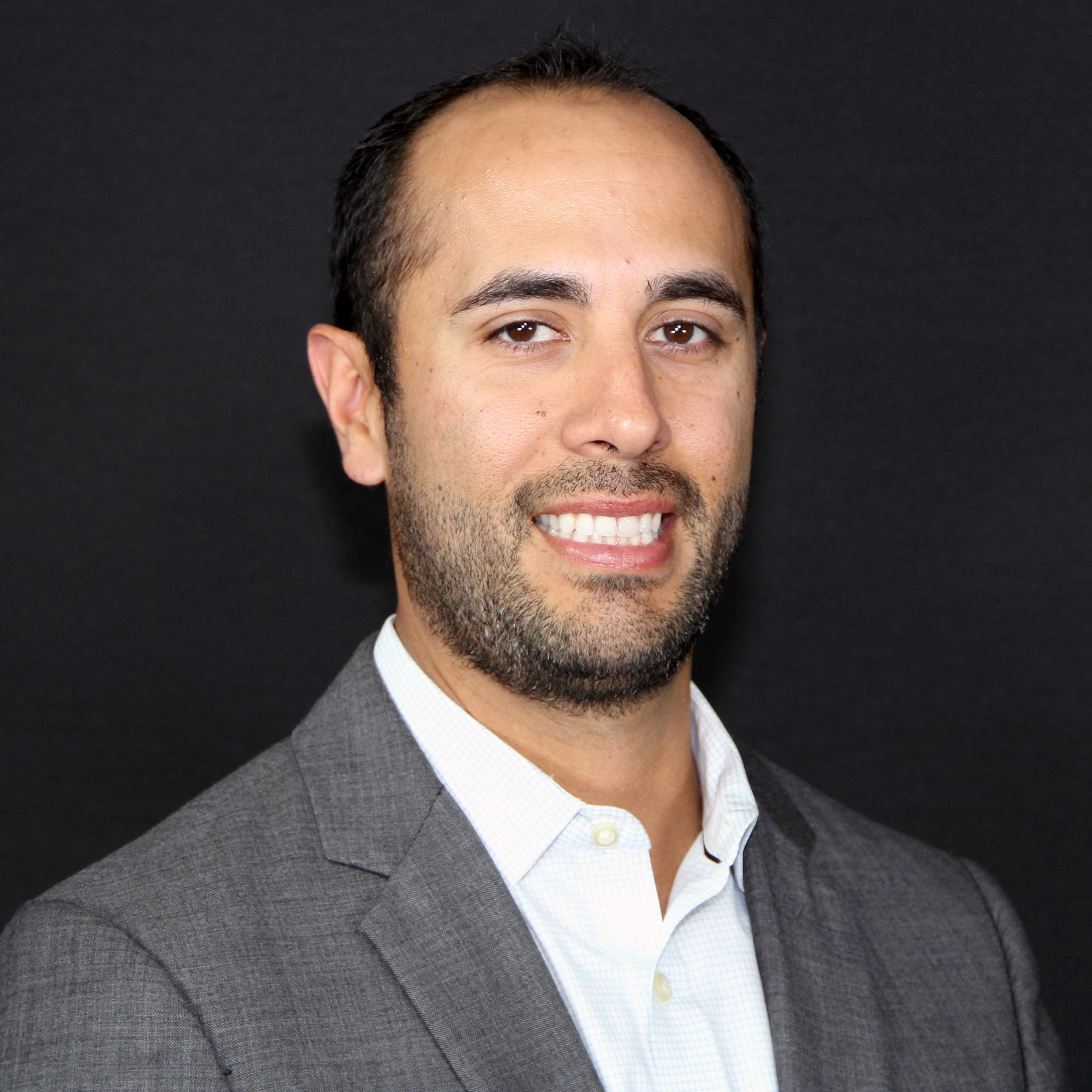
Edgar Zazueta
Association of California School Administrators
What should be the priorities for supporting early education during this economic downturn, and how well does the proposed budget meet them?
We appreciate funding to support the continued implementation of universal transitional kindergarten and the additional resources needed to serve our state’s earliest learners.
What’s your No. 1 priority for early learning that should be protected, or even expanded, in a declining revenue year?
See above.
Edgar Zazueta is executive director of the Association of California School Administrators, which represents 17,000 TK-12 school leaders from across the state.
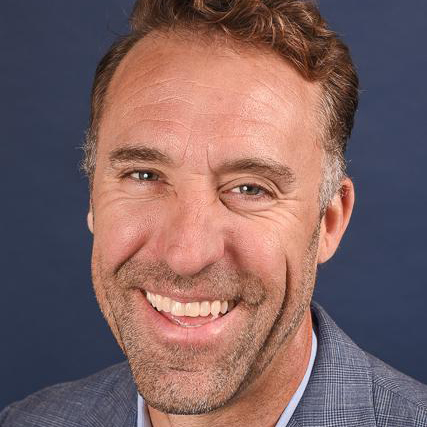
Jeff Freitas
California Federation of Teachers
What should be the priorities for supporting early education during this economic downturn, and how well does the proposed budget meet them?
Early childhood education and child care are even more important during an economic downturn. Expanding access to early education must be a priority as well as focusing on the pay and benefits of the workers. So many early childhood workers are severely underpaid and expected to do more each year.
Jeff Freitas is the president of California Federation of Teachers – A Union of Educators and Classified Professionals.
To get more reports like this one, click here to sign up for EdSource’s no-cost daily email on latest developments in education.













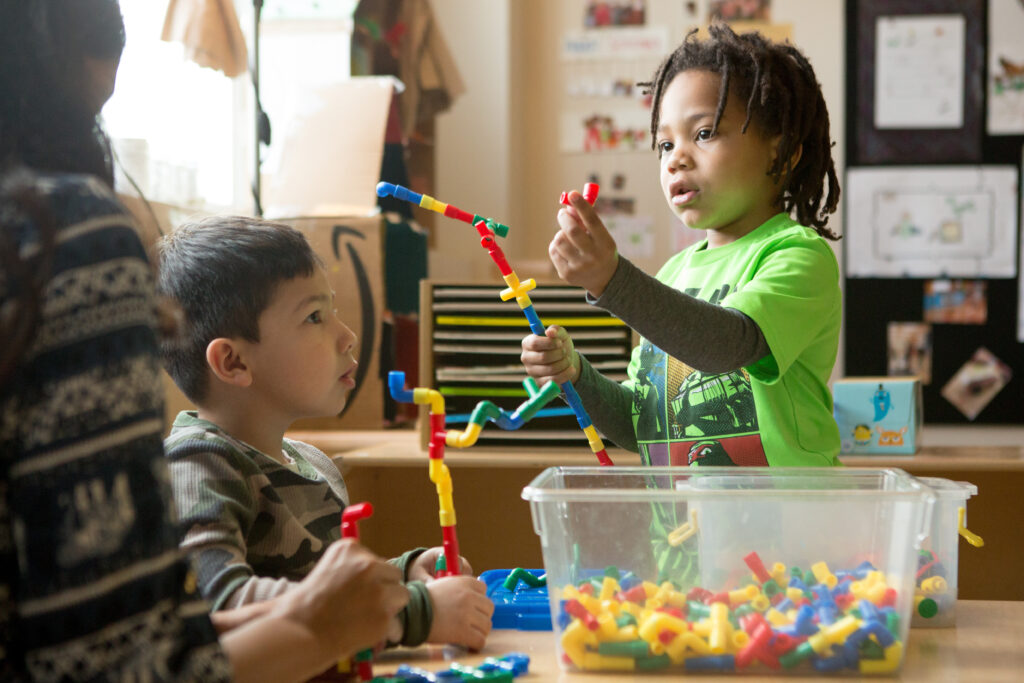
Comments
Comments Policy
We welcome your comments. All comments are moderated for civility, relevance and other considerations. Click here for EdSource's Comments Policy.